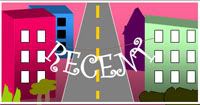The other Mary
On Sunday, our kids ministry taught what every other kids ministry across the world covered, the resurrection of Christ. I'm pretty confident in saying it was "the lesson" of the day. As I led the kids through a review game over our Bible story, a question was asked, "Who came to visit the tomb?" The answer was of course, "Mary Magdalene and the other Mary." I made a sarcastic crack (that I'm pretty sure only the adult leaders overheard) about feeling sorry for the other Mary because she was the second string Mary.
Let's admit that if your name is Mary, you get a pretty high profile spot in the lineup of women in the Bible. You have Mary, the mother of Jesus, Mary Magdalen, Mary of Martha, Mary, and Lazarus fame, and then there's the other Mary(s). These women were privy to the greatest story ever told and each held a front row seat for different parts of the life of Christ. And then on the final days of Christ's life on earth, they gathered to witness the most unexpected ending to a story they were all part of.
In Christ, each of these women had found a friend, a teacher, a lord, a hope for a future that was almost forgotten, a purpose, an acceptance, a love greater than they had ever known, and a changing self that only comes in the presence of the Savior. But on that last day, they stood and watched as all hope seemed to fade away and the man they had known, had followed, and had learned from, the man in which they placed their hope, trust, and faith, was captured, tried, and sentenced to what would be an unimagined end in their minds. These women gathered at the cross anguished, broken hearted, and in pain to watch their lord suffer death.
I can only imagine the grief and questioning they experienced on that hill. I wonder if they even thought of the promises he had made, the claim to be the Christ, or where they so dispondent from the sight of the physical pain he was subjected to? Could they look past the absolute hurt at watching their friend, maybe the only one who had seen past the muck of their sin to the beauty of life in his love, succumb to the torture and death so wrongly thrust upon him? Were they even thinking of the claims he had made to be the Son of God, of his prediction of his death? Or was the grief so deep and penetrating that hope was lost?
These women, who had experienced life with Christ, were now witnessing his death and I wonder if they thought their own new life might die with him. There is a place where grief is so deep, so overwheming that hope is lost to the shadows and I think these Marys might have been in that place. There are days where the promise of a new dawn, a new day are lost to the darkness of the moment; where we are blinded by the pain to even be able to picture anything else. Sometimes these days come like the one these women experienced, filled with death or loss of hope and sometimes they are days where we just wonder if tomorrow will bring something better than today.
And then that day ended with such overwhelming grief as the women watched Jesus gasp his last breath; taken down from the cross broken, battered and lifeless; wrapped in cloth and rushed to a tomb that was not his own; then experienced the finality of the stone being rolled over the cave marking the end to a life they had joined in. I imagine that was the day that hope died for them too. And so when the Marys returned to the tomb, to show one last act of love and kindness for a man who had given them so much more, they were so filled with grief that the empty tomb held no hope for them but only sorrow.
But that day the great difference between eyes that are human and eyes that are eternal was shown. For they saw a tomb that was robbed and the angel saw a tomb that was conquered. A new day brought with it a long ago promised new reality, one that had banished the sting of death and brought with it a hope that was finally realized. Death had not won on this day, grief and sorrow would not be victorious. And the story these women had participated in had not ended with a man's death on a cross but found its fulfillment with an empty tomb. A new dawn had come, a new day was here, and hope had survived its greatest test.
So how often are we the other Mary? Maybe it's the story of our own lives, where grief and harship seem to triumph over hope, or maybe it's the lives of those we call friends, who we share life with, that go through days where tomorrow doesn't seem possible, where hope if questionable. How will we stand beside them as they struggle through their own trials? Will we believe that hope and promise will somehow overcome the darkness of today? And even if the ending of their story doesn't come out the way we want it, will be rejoice that God has a plan, a wonderous, perfect plan that is always good and always bringing Him glory?
The Marys were part of a story that was overwhelming with its joy and grief. But maybe the point is that they were part of the story, they stayed until the end, whatever it might be.




